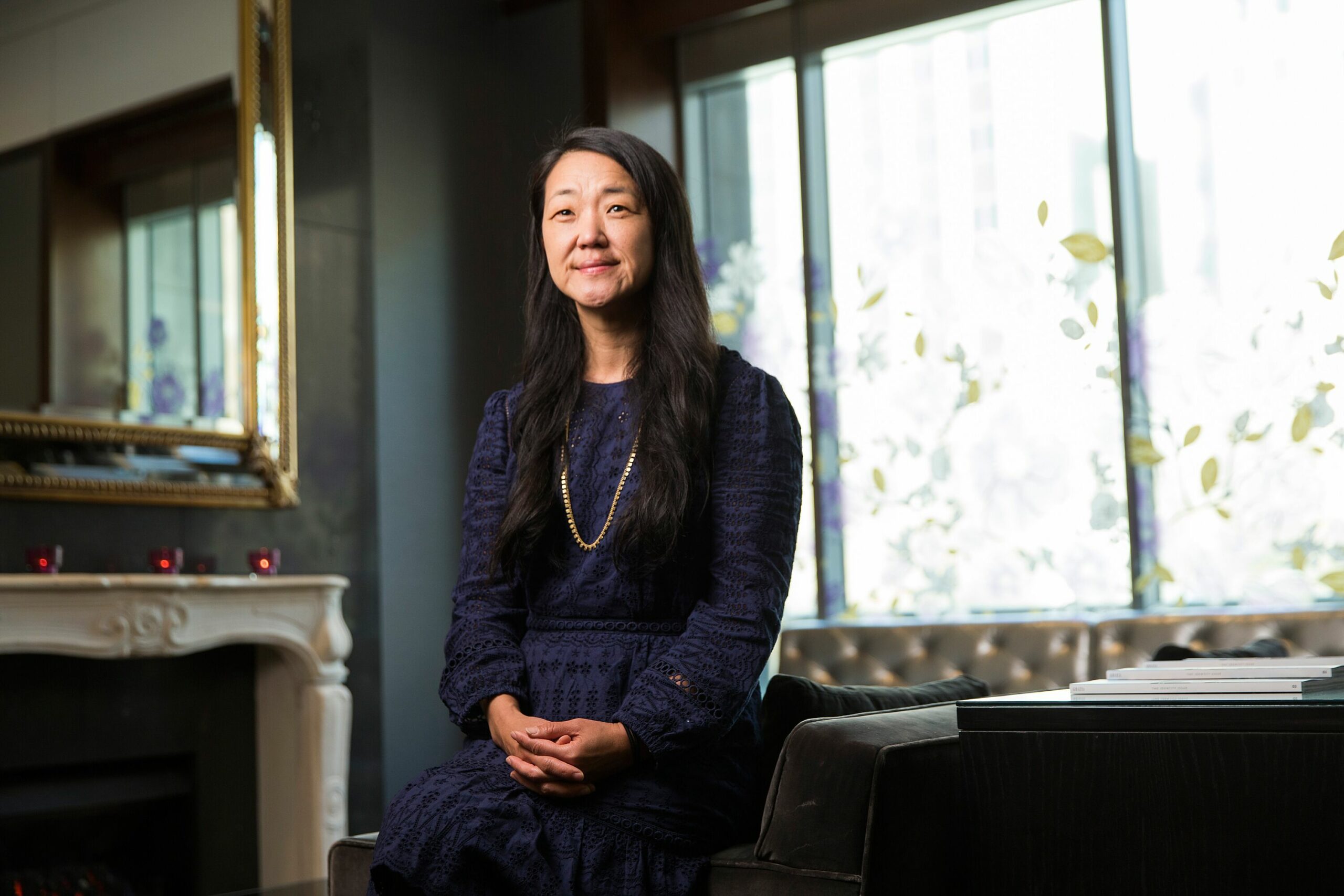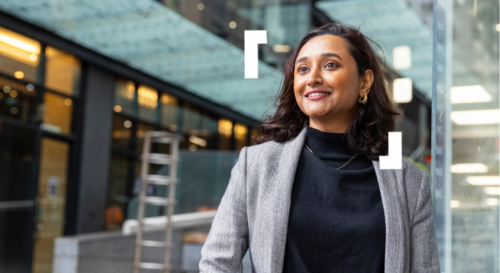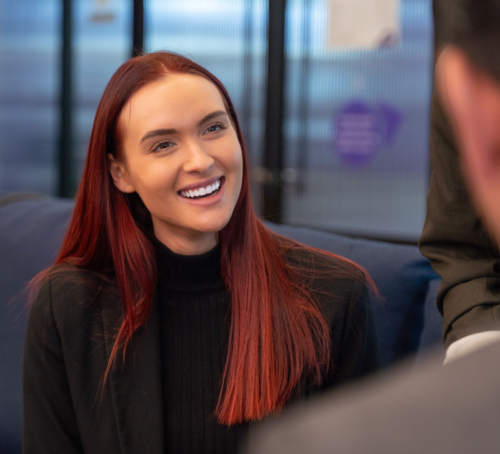Imugene CEO and MD, Leslie Chong has over 22 years of experience in leading clinical and department development in oncology therapies. We spoke to her about female role models in STEM, the challenges she’s faced in her career and how she got to where she is.
What inspired you to enter this line of work?
I initially entered this line of work because it was lucrative, and it was a career path that could provide me with opportunities to travel and visit major cancer institutions. It was pretty exciting.
When my dad was diagnosed with gastric cancer, it really elevated my commitment to my work; it became something that was more profound. During that time, my career was equally taking off, so this personal drive became important. I wanted to solve this puzzle that is cancer.
I ended up moving to Australia to head up a company that solely focused on immunotherapies, so this trajectory of my career and personal work in science just grew.
I could not recommend a better career for a woman than being a part of a lifelong change that is to alleviate malignant and chronic diseases. It’s been quite rewarding.
“I could not recommend a better career for a woman… It’s been quite rewarding.”
What drives you?
I have this drive to do better, not only as a female but as a minority in the STEM line of work. I think females are great multi-taskers and the ability to think differently. Our natural ability to multi-task and funnel our emotions and passions into day-to-day tasks really helps motivate me to be bigger and better at everything I do.
When it comes to excelling in your career, how important is it to value yourself?
It’s extremely important. Growing up female, my parents always told me I had to behave, and behave better than the males. As a result, I think there’s an insecurity that comes into play, whether I like it or not that I can’t just be good, I have to be better.
I have dear female friends who are in huge leadership roles, and they tell me they have imposter syndrome, and I think: ‘we need to start owning our leadership skills and the avenues we’ve taken and the things we’ve strived so hard for’.
We need to have that attitude, that yes, we’re here because we’ve worked extremely hard to get here and we’re going to continue working extremely hard because we need to set examples for other females in the future.
“We need to have that attitude, that yes, we’re here because we’ve worked extremely hard to get here and we’re going to continue working extremely hard because we need to set examples for other females in the future.”
How do we work on getting rid of imposter syndrome?
Having more examples of females in STEM leadership roles. I know racial and gender inequalities are different avenues, but I remember growing up in the southern states of the US and watching TV and not having leadership role models that looked anything like me. That played a really big part. If you see role-models that look like you, you could see that there are avenues and opportunities to strive to be that person one day.
What are some of the achievements that you’re most proud of?
I think everything I’ve ever done has been based on making my parents proud. I really feel like my father would be quite interested in the work I’m doing.
I’m really proud of the fact that hopefully, I’ll have something to give back to humanity with the work that I’m doing.
“If you see role-models that look like you, you can strive to be that person one day.”
What qualities make a good leader?
Being curious and a desire to be good at what you do and being authentic.
I strive to be authentic in my personal and career life – if you’re unable to be authentic, it’s hard to come across as genuine.
I also think it’s important to keep being curious and strive to be good at anything you do. I am curious about everything and I like being good at things and getting noticed for it. I have a work ethic that has been drilled into me by my parents.
Why is it so hard for people to be themselves?
When I started working in key leadership roles, I started mimicking the attributes that I thought a leader should have: aggressive, stand-up-for-yourself, always be the person who is right or knows the answers. I don’t know where that came from – it must have been what was set forth before me. As I came into my own, I think I went back to that authenticity and being true to myself.
What are the differences in the challenges you faced at the start of your career VS the challenges you face today as a CEO?
When I first started my career I was out for self, and not really listening. I remember thinking that I was too high a level or too good to write the minutes for a clinical team meeting, and now I’m finding out that the higher you go, the sharper your administrative skills need to be and owning and writing your own minutes for a meeting is not beneath anyone.
Something that I always say to everyone in my company is: no matter how high you move up in one’s position, you’re always going to be an admin to someone.
As your leadership capacity grows, you will find the finer the tuning of your management and listening skills need to be.
“I’m really proud of the fact that hopefully, I’ll have something to give back to humanity with the work that I’m doing.”
How important is it to have mentors?
Absolutely important. I’ve always gravitated towards having female mentors. There are so few females in our line of work, so you really want to tap into how they got there and what motivates them to be here.
Looking back on your career, would you do anything differently, if given the chance?
I don’t think that I would do anything different. I think we all try to do things so that we don’t have regrets in the future, because that’s a very difficult thing. The decision-making process can be a little laborious for me, because I try to get things right so that I don’t have any regrets. I do feel extremely lucky to have this wonderfully rewarding career and life. I am grateful.
What are some of the projects you’re currently working on at Imugene?
One of the reasons I joined this company is because of the work we’re doing. In basic terms, it’s turning on your immune system against one’s own particular cancer target.
In the case of Imugene, we have two platforms. Our Oncolytic Viraltherapy where a virus infiltrates the malignant cancer cells and invokes your own immunity to come and assist in destroying it. It’s this beautiful process, getting your body back to what it should be doing, a healthy innate and organic immune system.
Our other platform is a B-cell activating immunotherapies. This is where your b-cells create the antibodies against a particular cancer target. We’ve been fortunate that we’ve had a study data where we’ve shown that there’s a lot more safety when you have endogenously created the antibodies rather than inject the synthetic antibodies.
The line of work is finally fruiting some significant data.
Find out more about Imugene and Leslie Chong.
PERSOLKELLY is one of Australia and New Zealand’s leading staffing and recruitment providers. If you’re looking for work, explore our jobs, or register your details, search and apply for jobs on GO, available free from your App store. If you’re looking for staff, get in touch with us to find out how we can support your business with great people.






